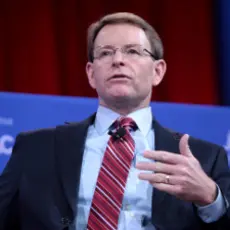Family Research Council senior fellow Pat Fagan appeared alongside Tony Perkins, the head of FRC, on Washington Watch yesterday to discuss his article which claims that Eisenstadt v. Baird, the 1972 case that overturned a Massachusetts law banning the distribution of contraceptives to unmarried people, may rank “as the single most destructive decision in the history of the Court.”
Fagan argued that the Supreme Court decision was wrong because it effectively meant that “single people have the right to engage in sexual intercourse.” “Society never gave young people that right, functioning societies don’t do that, they stop it, they punish it, they corral people, they shame people, they do whatever,” Fagan said.
The court decided that single people have the right to contraceptives. What’s that got to do with marriage? Everything, because what the Supreme Court essentially said is single people have the right to engage in sexual intercourse. Well, societies have always forbidden that, there were laws against it. Now sure, single people are inclined to push the fences and jump over them, particularly if they are in love with each other and going onto marriage, but they always knew they were doing wrong. In this case the Supreme Court said, take those fences away they can do whatever they like, and they didn’t address at all what status children had, what status the commons had, by commons I mean the rest of the United States, have they got any standing in this case? They just said no, singles have the right to contraceptives we mean singles have the right to have sex outside of marriage. Brushing aside millennia, thousands and thousands of years of wisdom, tradition, culture and setting in motion what we have.
…
It’s not the contraception, everybody thinks it’s about contraception, but what this court case said was young people have the right to engage in sex outside of marriage. Society never gave young people that right, functioning societies don’t do that, they stop it, they punish it, they corral people, they shame people, they do whatever. The institution for the expression of sexuality is marriage and all societies always shepherded young people there, what the Supreme Court said was forget that shepherding, you can’t block that, that’s not to be done.





